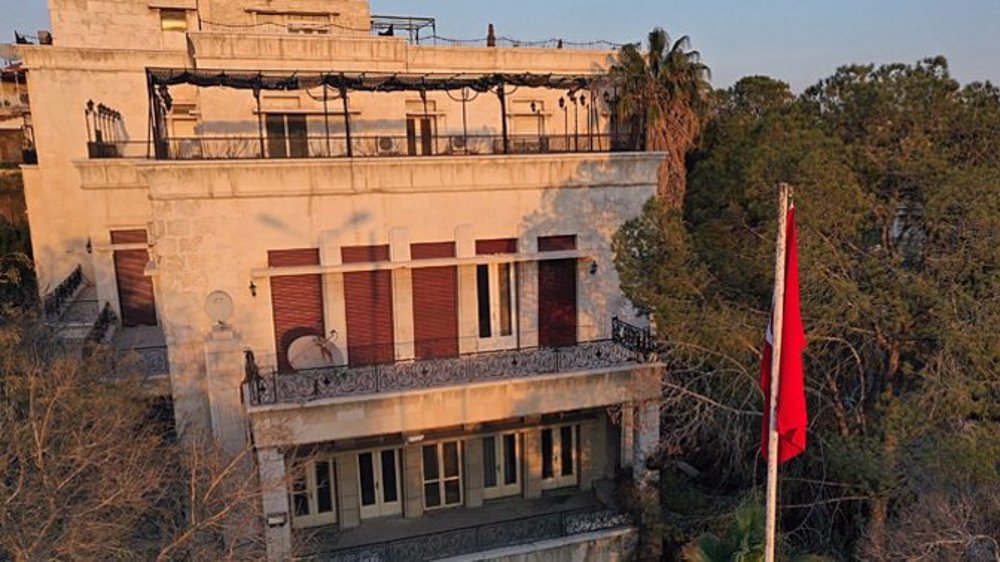Turkish premier’s departure worrying: German politicians
Politicians from Germany's ruling coalition have voiced serious concern over Turkish Premier Ahmet Davutoglu’s decision to step down.
They say Davutoglu's departure will cement President Recep Tayyip Erdogan’s grip on power and tilt Turkey toward authoritarianism.
Niels Annen, spokesman on foreign affairs for the ruling Social Democrats said Thursday that Davutoglu’s resignation would pave the way for Erdogan to rule unchecked.
“Erdogan will be able to push ahead with his plans to change the constitution now without opposition from his own ranks,” said Annen
“In view of the prevailing climate of repression and the current debate about lifting the immunity of opposition lawmakers this is bad news.”
On Thursday, Davutoglu announced that he would not seek a new term as prime minister and head of the ruling Justice and Development Party (AKP).
The announcement came after a gathering of the party’s central executive committee amid months-long rumors of tensions between Davutoglu and President Erdogan.
Juergen Hardt, foreign affairs spokesman for Merkel’s Conservatives, also said Davutoglu’s departure would push the country further away from Europe.
“Turkey will decide itself whether its future path leads to Europe or towards greater isolation,” Hardt said in a statement.
The resignation has also sparked deep divisions and reactions inside Turkey as well.

Kemal Kilicdaroglu, who heads the Republican People’s Party (CHP), has strongly denounced the ouster of Davutoglu as a “palace coup” aimed at consolidating the president’s power.
“Davutoglu’s resignation should not be perceived as an internal party issue, all democracy supporters must resist this palace coup,” leader of Turkey’s main opposition said at a Thursday presser.
Soner Cagaptay, director of the Turkish Research Program at the Washington Institute, said the move was the next stage in a “hollowing out” of Turkish institutions by Erdogan, who already controls the army and parliament
Davutoglu has, however, stopped short of criticizing the Turkish president and stressed his loyalty to Erdogan, who is the AKP’s founding father and most influential figure.
Erdogan had previously criticized his ally Davutoglu for remarks he made about Turkey’s potential amendments to the presidential system, saying he should not forget how he became prime minister.
He has long sought to establish a presidential system of government instead of the current parliamentary system. Critics, however, say such a system, which grants sweeping powers to the president, would push Turkey towards authoritarianism.
Merkel criticized for trusting Turkey
The critical comments against the developments in Turkey come as Europe is seeking Ankara’s help in tackling an unprecedented refugee influx in the continent.

Merkel and some other European leaders are accused of compromising on freedom of expression in order to ensure Turkey’s continued cooperation to address the refugee crisis.
Human Rights Watch (HRW) has called on Merkel and European Union leaders to reconsider a recent contentious refugee deal between Turkey and the 28-nation bloc.
Last month, Turkey and the EU sealed a controversial deal intended to stem the flow of refugees from Syria and other troubled countries to Europe in return for financial and political rewards for Ankara.
Under the agreement, the bloc will take in thousands of Syrian refugees directly from Turkey and reward it with money, visa exemption and progress in its EU membership negotiations.
Many rights groups from across the globe have been calling on Western countries to press Turkey on the issue of human rights.
There have been reports of many people prosecuted in Turkey for insulting top authorities.
Activists say Erdogan has filed hundreds of court cases against critics, including many journalists, for insulting him since he took office in August 2014.
Iran: US airstrikes on Yemen war crimes, violation of international law
Yemeni armed forces down F-18 fighter jet, repel US-UK attack: Spokesman
Iran warns against US-Israeli plot to weaken Muslims, dominate region
VIDEO | Public uproar in US against Israeli regime
‘Ghost town’: 70% of Jabalia buildings destroyed by Israel
Mother’s Day: Sareh Javanmardi’s inspiring journey as Paralympic champion and mother
Russia downs over 40 Ukrainian drones as Putin vows 'destruction' on Kiev
VIDEO | Yemen: A bone in Israeli neck















 This makes it easy to access the Press TV website
This makes it easy to access the Press TV website